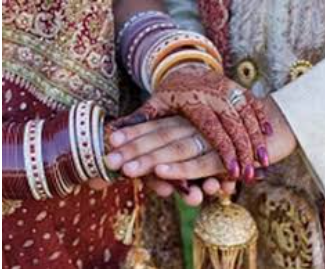Arranged Marriage In Islam

September 07, 2022 | matrimony
Arranged Marriage In Islam: A Comprehensive Guide
Arranged marriage in Islam is a time-honored tradition that holds a significant place in the lives of many Muslims around the world. This practice involves the union of two individuals brought together through the guidance of their families and the principles of their faith. In this comprehensive guide, we delve into the various aspects of arranged marriage in Islam, shedding light on its essence, cultural context, and addressing common questions.
Arranged Marriage In Islam: Understanding the Tradition
Arranged Marriage In Islam serves as a cornerstone of many Muslim communities, guided by faith, family, and cultural values. The practice entails the involvement of family members, who work together to identify potential partners based on shared religious beliefs, values, and compatibility.
Arranged Marriage In Islam holds a positive sentiment within the Islamic faith, as it is perceived as a means to establish a harmonious and lasting marital bond. The marriage is not solely based on personal preferences, but rather on the broader perspective of creating a stable and fulfilling family unit.
The Significance of Arranged Marriages in Islamic Culture
Arranged Marriage In Islam is deeply rooted in the cultural fabric of many societies, underlining the importance of familial bonds, community support, and shared values. Power Keyword: Significance
This practice often serves as a means of preserving cultural heritage, as families seek partners who uphold similar traditions and customs. It fosters a sense of unity within the community, as the marriage isn't just a union of two individuals, but a merging of families and backgrounds.
The Role of Faith in Arranged Marriages
In the context of Arranged Marriage In Islam, faith plays a pivotal role in shaping the union.
Islamic teachings emphasize the significance of faith and piety as essential qualities in a partner. This ensures that both individuals are committed to upholding the principles of Islam within their marriage, creating a strong foundation built on shared spiritual values.
The Process of Arranged Marriage In Islam
The journey of Arranged Marriage In Islam involves several stages, showcasing the careful consideration and dedication of families in choosing suitable partners.
Family Involvement: Families take an active role in the process, drawing from their understanding of their children's personalities and preferences.
Matchmaking: Families may seek the guidance of religious leaders or use matrimonial services to find compatible partners.
Meeting and Consent: Once potential partners are identified, they have the opportunity to meet and engage in meaningful conversations. While mutual consent is valued, it is often given within the boundaries of Islamic principles.
Addressing Misconceptions about Arranged Marriage In Islam
Arranged Marriage In Islam has often been misunderstood or misrepresented. It's important to dispel these misconceptions to appreciate the beauty of this tradition.
Misconception: Arranged marriages lack love.
Reality: Love often develops after marriage, nourished by shared experiences and commitment.
Misconception: Arranged marriages disregard personal choice.
Reality: While family involvement is prominent, the final decision remains with the individuals involved.
Conclusion
Arranged Marriage In Islam is a practice deeply rooted in faith, culture, and family values. It exemplifies the harmonious balance between individual desires and communal interests. By understanding the essence of this tradition and dispelling misconceptions, we can appreciate the wisdom and beauty that Arranged Marriage In Islam brings to the lives of many.
FAQs about Arranged Marriage In Islam
Q: Is consent important in arranged marriages?
A: Yes, consent is crucial in Islam. Individuals have the right to accept or decline a proposed marriage.
Q: Can individuals refuse a proposed partner?
A: Yes, Islamic teachings emphasize the importance of free will and choice.
Q: How can families ensure compatibility?
A: Families consider shared values, religious beliefs, and cultural compatibility during the matchmaking process.
Q: Are arranged marriages successful?
A: Arranged marriages can be successful, just like love marriages. Success depends on mutual understanding, communication, and commitment.
Q: What if individuals don't get along after marriage?
A: Islam encourages patience and understanding. If issues arise, couples are advised to seek guidance and work towards resolution.
Q: Is arranged marriage forced marriage?
A: No, forced marriage goes against Islamic principles. Arranged marriage involves consent and choice.
